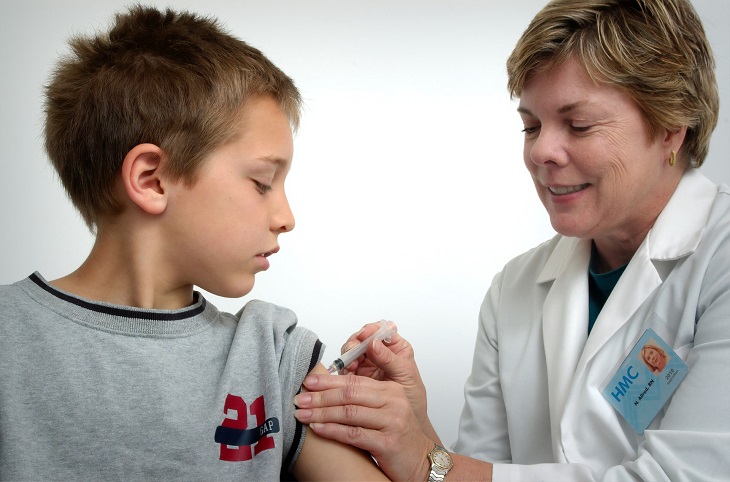THE DAILY DOSE
What Is Preventive Medicine?

Modern medicine has come a long way to help people treat a variety of different conditions. It wasn’t until the early 1900s that a human-made antibiotic was even discovered to help treat something as common as a bacterial infection. Since then, medications have been widely available to treat everything from a typical headache all the way through to a serious case of cancer.
For centuries, though, people have incorporated different methods of treatment, like holistic therapies or Chinese medicine, into health care. With the rise of chronic diseases, preventive medicine is now being more commonly used by medical professionals to focus on staving off future illnesses as opposed to simply treating existing ones.
The history of preventive medicine
The history of preventive medicine goes as far back as the 5th century BC, although many societies largely ignored the efforts to adapt to a preventive type of lifestyle. Through the centuries, many principles of preventive medicine were passed aside for more modern solutions. It wasn’t until the 1300s that officials started to take the movement seriously, and in 1388 a sanitary act was passed in England.
In the centuries that followed, other orders were made for quarantine-type preventions during the first plague, and the study of epidemiology was begun in the 1700s. These initial instances of preventive medicine paved the way for societies to devise methods of avoiding illness rather than just treating it.

Why is preventive medicine so important?
Preventive medicine is a vital contribution to an overall healthy society because many chronic illnesses are entirely preventable. Instead of waiting for an illness to take hold, the main goal of preventive care is to limit or abolish the risk of getting sick in the first place. Its importance lies in its ability to really change the way populations live and take care of their own wellbeing.
In the health care system, preventive medicine has been put into second-tier care, which can be a reverse way of looking at how to achieve a good level of health. Things like eating a healthy diet, getting enough exercise, and knowing what your genetic dispositions are for certain chronic illnesses can all be great ways to avoid developing serious and chronic disease in the future.
What does a preventive medicine doctor do?
Instead of focusing on an already developed illness, a preventive medicine doctor will play the role of avoidance specialist. This means they spend the majority of their time developing new ways to prevent injury and illness as opposed to coming up with new medications and/or treatment plans.
Preventive medicine doctors divide their specialties among communities, individuals, and specific populations to help improve the health of an area. They do this by teaching new medical staff how to prevent the spread of disease, developing health programs, and finding causes for diseases based on new research and symptoms. These medical professionals work largely in government agency settings to help with disease surveillance and preventive programs.
What is an example of preventive medicine?
Many things could be considered preventive medicine. The first and foremost preventive medicine is diet. For example: cardiovascular disease affects 18.2 million American adults. The role of diet in preventing heart disease is a big one, because dietary changes can help to lower the risk factors that lead to development of the chronic illness.
Other forms of preventive medicine include primary, secondary, and tertiary prevention. Vaccines and other forms of immunizations fall under the umbrella of primary preventive medicine, while screening tests for things such as breast and ovarian cancer will fall into the secondary category. Tertiary prevention is designed to help those with already existing chronic disease improve their quality of life by way of rehabilitation and treatment plans.
Other examples of preventive medicine include lifestyle modifications such as early detection of disease, the implementation of supplements or exercise routines, and new health legislation to help communities as a whole battle endemic-type health crises.

The future of preventive medicine
As more medical professionals and associations begin to realize the benefits of preventive medicine for society and the health care system, it will garner more recognition as the first line of defense against unhealthy populations. The change in how people are cared for – and how they care for themselves – is much needed to bring the rampant numbers of chronic illness down for Americans.
With the rise of obesity, cardiovascular disease, diabetes, metabolic syndrome, and mental illness, there has never been a more crucial time to adapt to a new system of health care and disease prevention. Research has shown that providing people with educational programs and access to services that could help them lead a healthier lifestyle is the first step in making preventive medicine well utilized.
The only way towards a thorough preventive care system is by the conscious collaboration between populations, the food industry, the health sector, and the environmental sector.
Subscription boxes
Vital RX has created a line of subscription boxes that can be used as part of your preventive medicine program. Boxes are curated to deliver real results for people suffering from low immune health, obesity, low energy, toxification, and low levels of fitness.
These boxes are not meant to replace medical treatment, and when starting a new supplement regime, you should always consult with your doctor first to see if it’s right for you and your current state of health.
Featured image by Andrew Welch on Unsplash